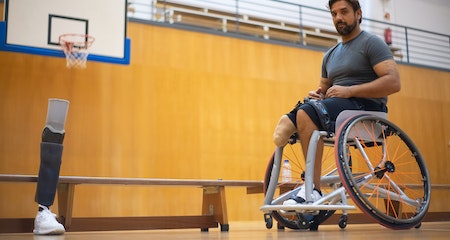
Several different services are available for people with a disability support services Melbourne
in the home. Some are medical, others are not-medical and some are community-based. There are also different types of support services, such as OPWDD and residential options.
OPWDD
OPWDD Home Disability support services provide assistance to individuals with developmental disabilities. These services allow them to live independently and take part in their communities. This includes assistance to help them find employment.
OPWDD’s services primarily are provided in communities. This is done through the assistance of voluntary not-for profit agencies. Each individual receives a tailored plan of services from the agency. These supports are designed to assist people with disabilities achieve health and wellness, build relationships, and create valued outcomes.
Day programs provide vocational and social support. They also offer personal support. Individuals and their families may choose to direct their own services. Individuals may opt to take a job readiness course. They may also decide to have a relative volunteer. They may also receive assistance from their neighbors and friends.
OPWDD also offers family support services. These programs offer sibling services, training, and crisis support. These services can be a great way to give caregivers a break. They can also provide support for moral and social issues. They also provide
parent-to-parent networking.
People with severe disabilities can live either in apartments or their homes. They may also receive modifications to their homes to make them more accessible. A wheelchair ramp or specialized door lock can be helpful in assisting people with disabilities to get out their homes. OPWDD also provides a housing subsidy. This subsidy will be given proportionally to the individual’s annual income. The formula used to calculate the subsidy includes the number of bedrooms in the house. The person receiving the subsidy is required to contribute a percentage of their income towards the cost of housing.
The OPWDD Coordinated Assessment System (CAS) is used to help individuals and families determine their needs and strengths. It also helps OPWDD identify community supports. It helps to identify and solve problems.
People with intellectual disabilities can choose to live in community housing
Support and housing are just two of the many issues that a person with an intellectual handicap faces. An average person with an IDD may not have the resources and support they need to live in their own home. They are more likely than others to live in an institution.
Luckily, there are a number of community residential options for people with an intellectual disability to choose from. There are the standard suspects: single apartments and group homes. But there are also family living options. These communities offer many options to meet the needs people with different levels of need.
There are many other options available to you that will provide relief from the daily stresses. These programs offer qualified staff that are available seven days a week, 24 hours a day. These services include respite and home health care as well as mental health treatment. These services prove that an IDD patient does not have to be a prisoner.
Reverse lifesharing is another option. This allows a family member to move in with someone with IDD. This option is not available to more people with IDD. It is a shame. Luckily, there are organizations such as ATP that offer restorative services similar to that of a community residence. The Office of Mental Health has certified ATP. ATP’s mission aims at promoting healthy living and community inclusion for those with mental health challenges. This is accomplished by providing support services and assistance, as well coordination of mental health and medical care. The organization’s most important function is to promote good landlord/tenant relationships for their tenants.
Services for non-medical homecare
Non-medical homecare services can be a great option for you or your loved ones, regardless of whether you need long-term or short-term care. They can help with daily errands, meal preparation and other support services to ensure your loved one is safe, healthy, and comfortable at their home.
Non-medical homecare services also can complement a medical homecare plan. These are designed to provide the elderly or disabled with the support they need to stay at home. These services are provided by a variety medical and non-medical professionals. These professionals include licensed practical nurses, occupational therapists and physical therapists.
The non-medical industry for home care is growing rapidly. There are many large integrated facility providers who are expanding their services. These providers offer a variety of non-medical services, including transportation and homemaking assistance. Some financial assistance programs call this “assistance with daily living activities.”
Many traditional home health agencies have begun to offer non-medical services. Non-medical home care services can be a great way for an elderly or disabled relative to stay at home and are cheaper than
hiring a nurse.
Home care can also help to lessen the impact of illness and injury. A home care provider can assist an older adult with daily tasks, such as meal preparation, cleaning, or managing medications. The best part about a home health service is that it can also be used by people of all ages.
Non-medical homecare is not covered by Medicare. This is the most important thing to remember. However, Medicare does pay for medical homecare services provided by licensed medical professionals.
When looking for home care services, the best place to start is your family physician. A doctor’s referral is often required for Medicare coverage.
Private providers
Hundreds of thousands of disabled individuals are served by nonprofit disability service providers. These organizations provide comprehensive social and medical services to people with disabilities as well as their families. These organizations are major employers in local communities and generate millions of dollars annually.
The Rockefeller Institute of Government did a study about the economic impact of New York State’s disability service providers. This study found that the state’s disability service provider contributed $14.3 million to its economic output. They also generated 65 percent the employment. These providers created 194,977 full-time jobs. These jobs created an economic impact equal to $108 per hour. The state’s economic output was equal in all regions. The Mid-Hudson area had the greatest economic impact followed by Long Island, New York City, and Long Island.
These providers offer support services as well as creating businesses and social enterprises to generate revenue. These organizations provide a range of services to public customers and private customers. These services are purchased by the State for those under 65. The Ministry of Health continues to play a role as both a purchaser and a funder. The State also issues checks for individual provider payments, and withholds applicable disability insurance and Social Security taxes.
Although New York State has a large number of disability service providers, New York City is the largest provider of these services. In fact, 30 percent of the state’s disability service providers are located in the city.





